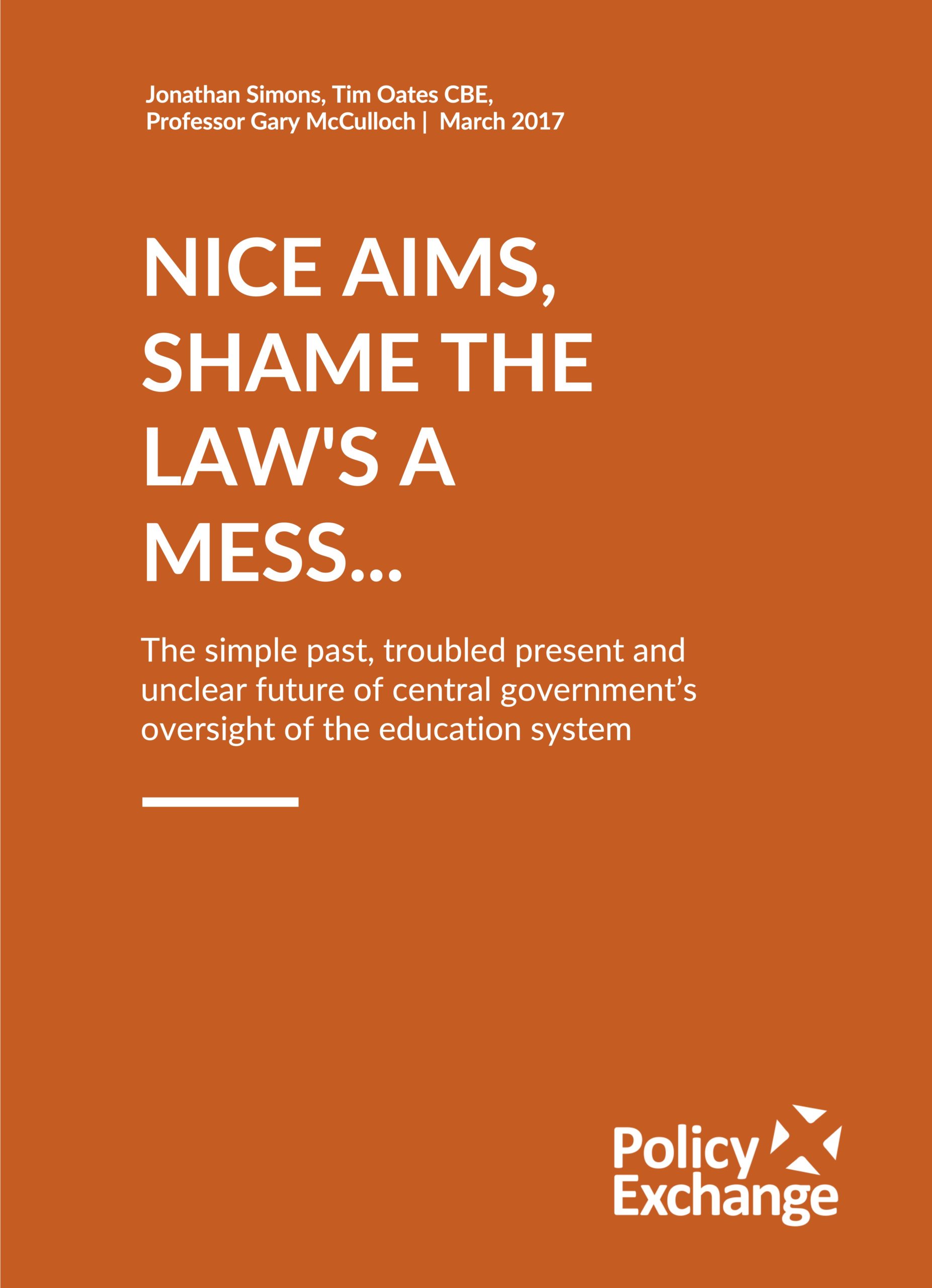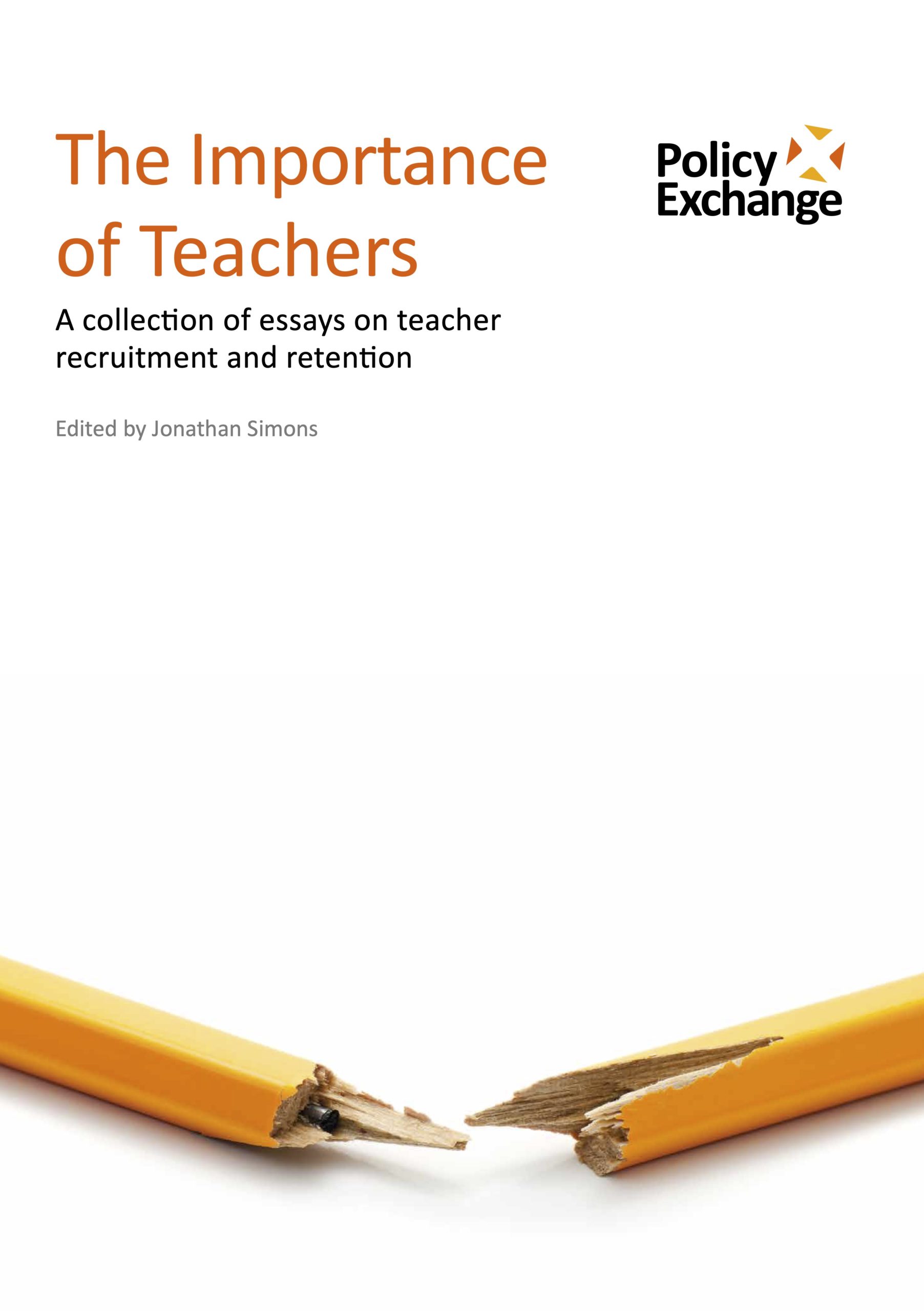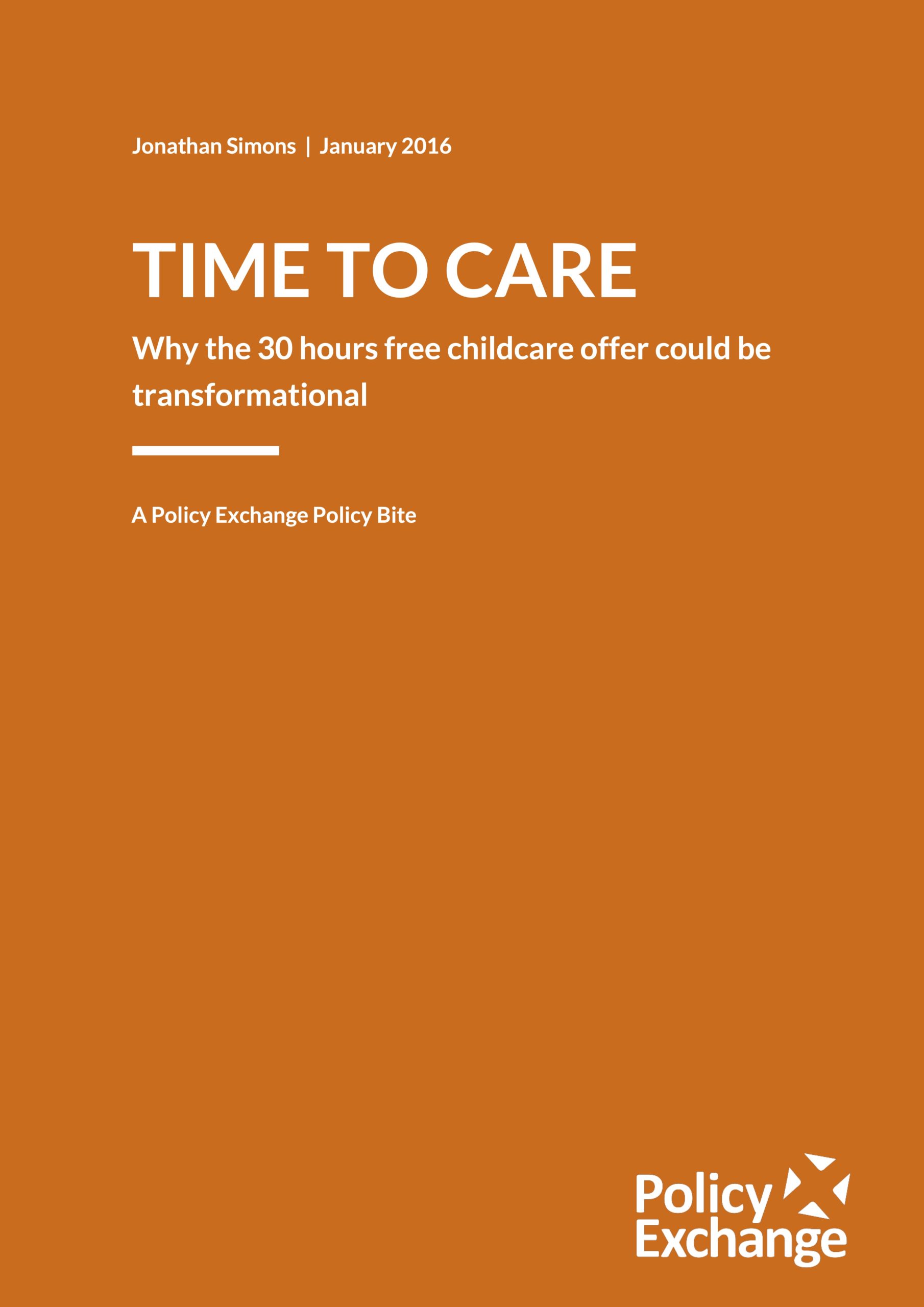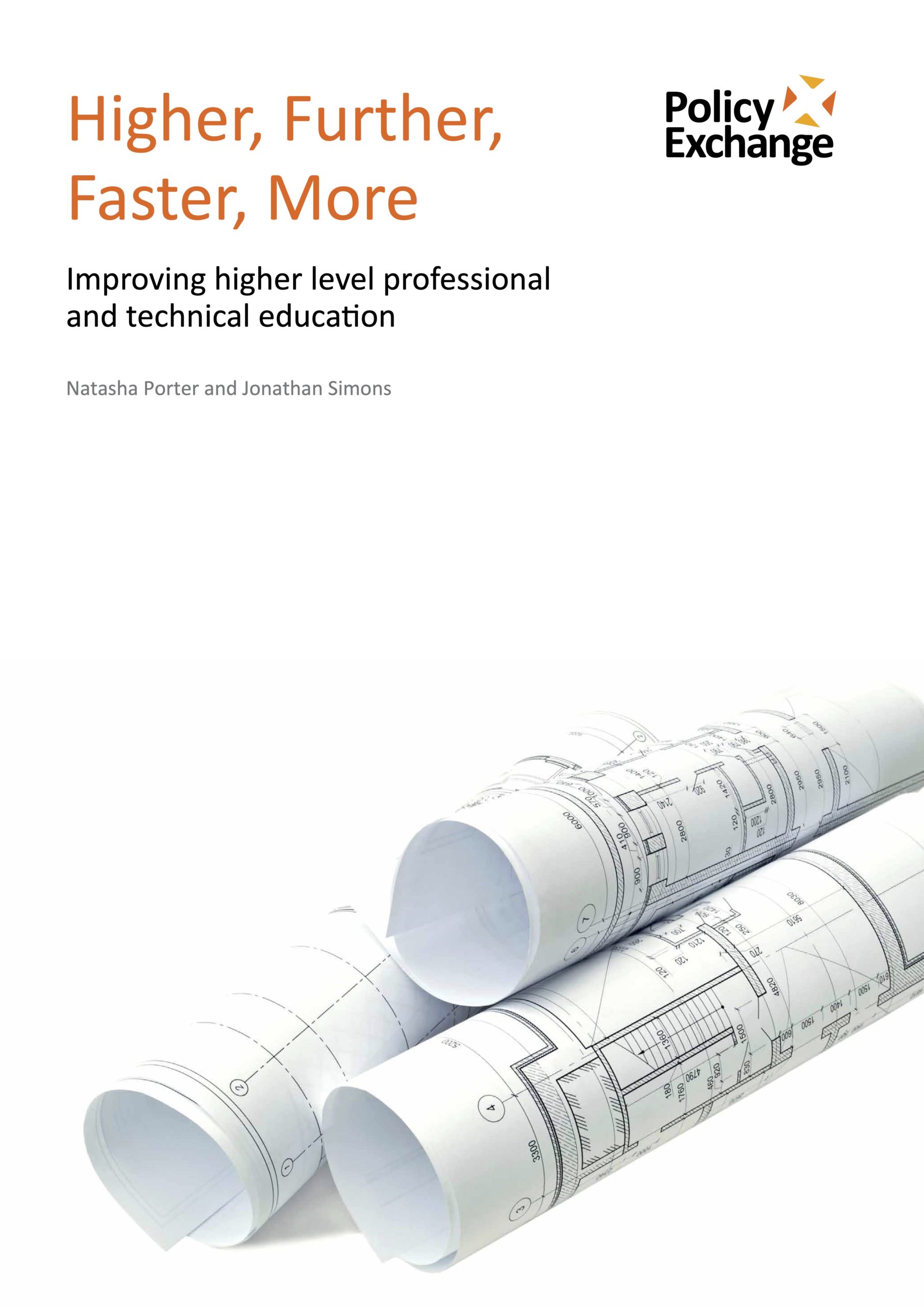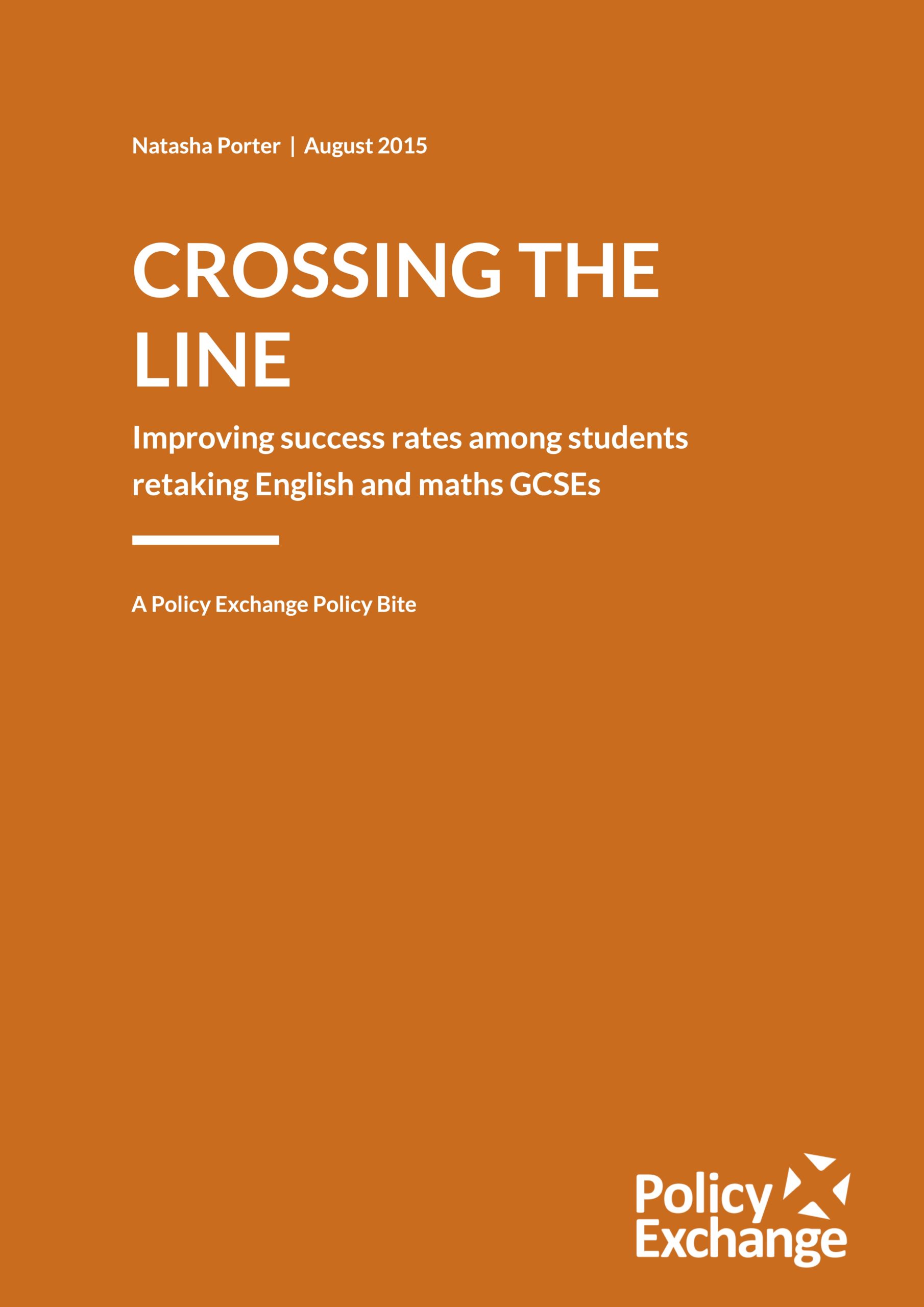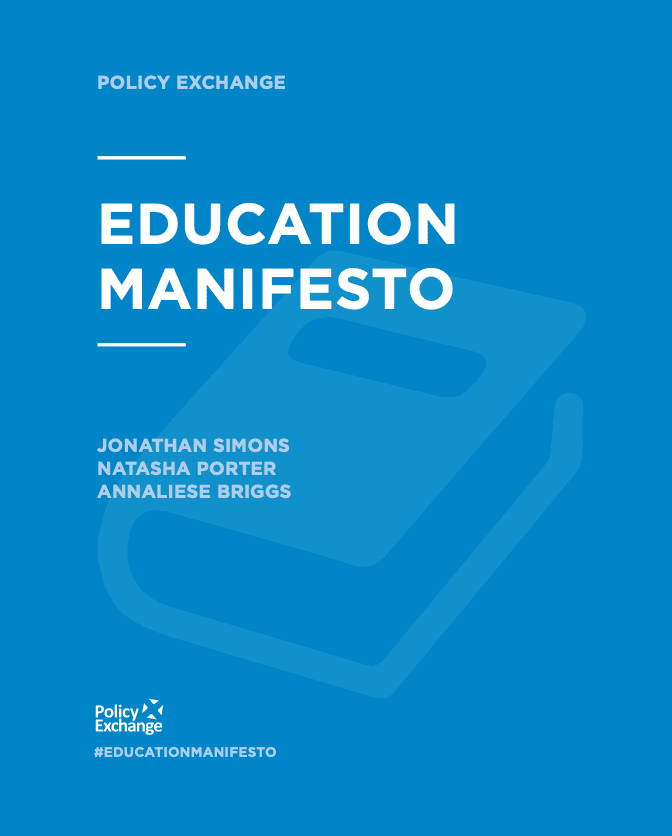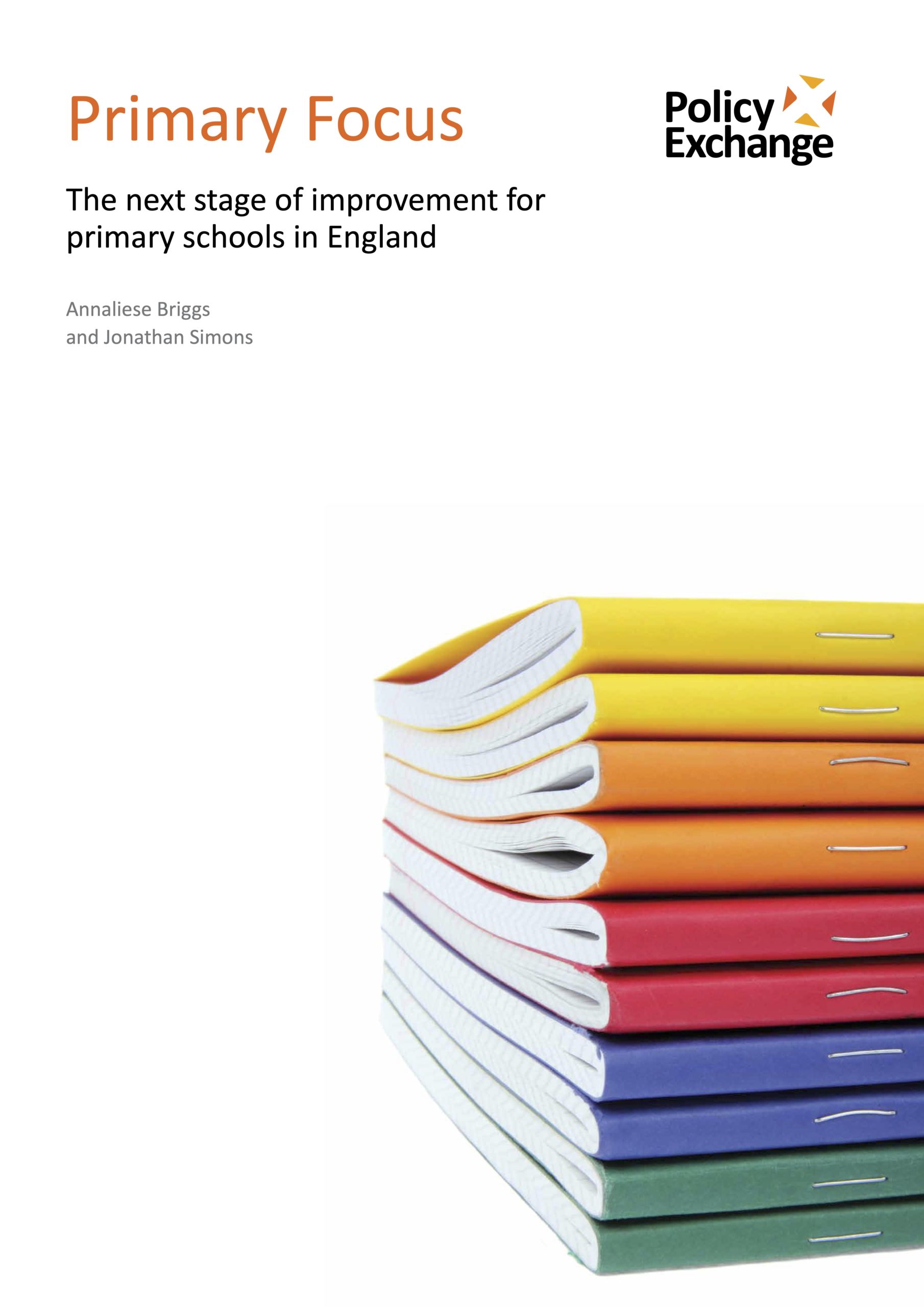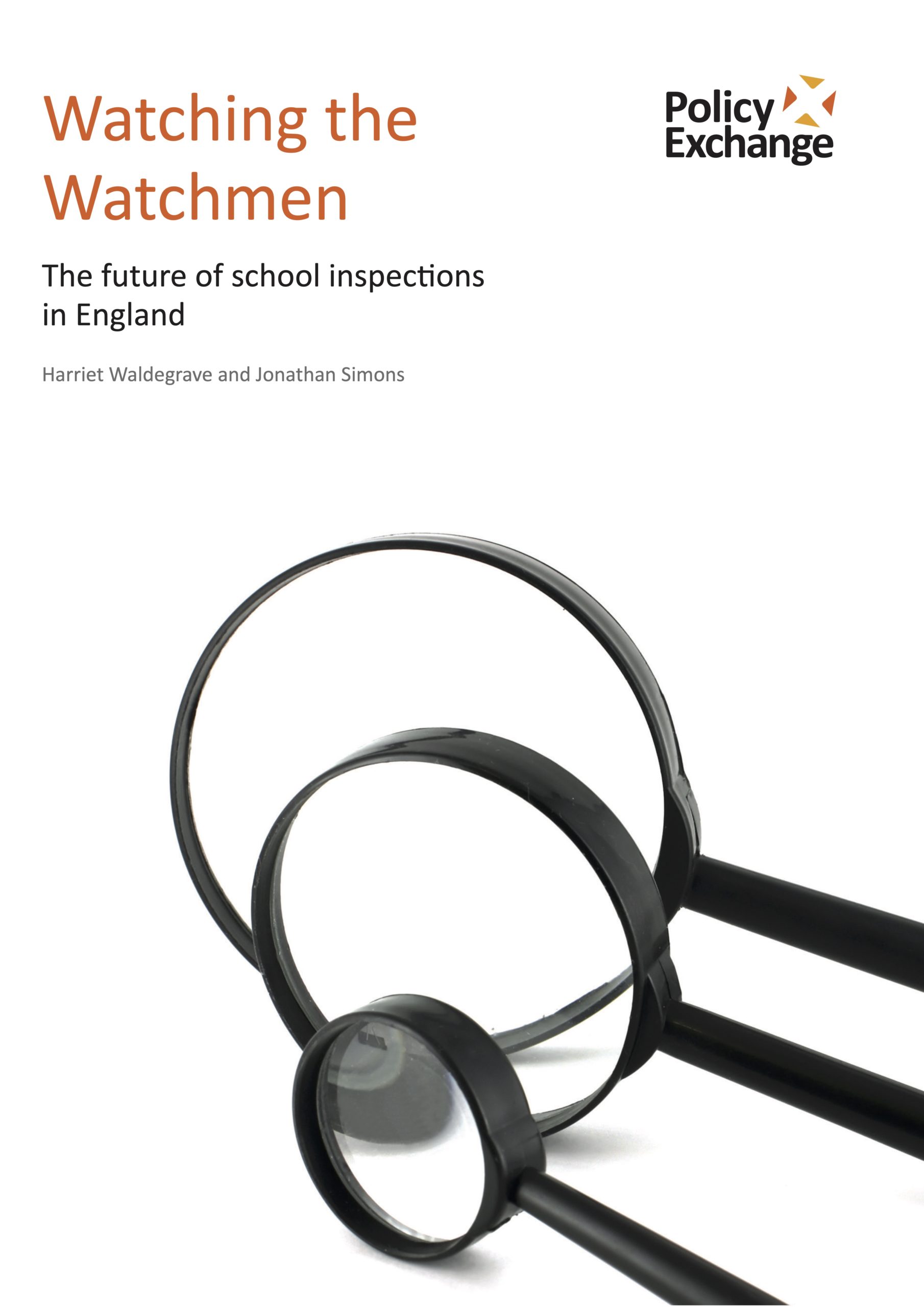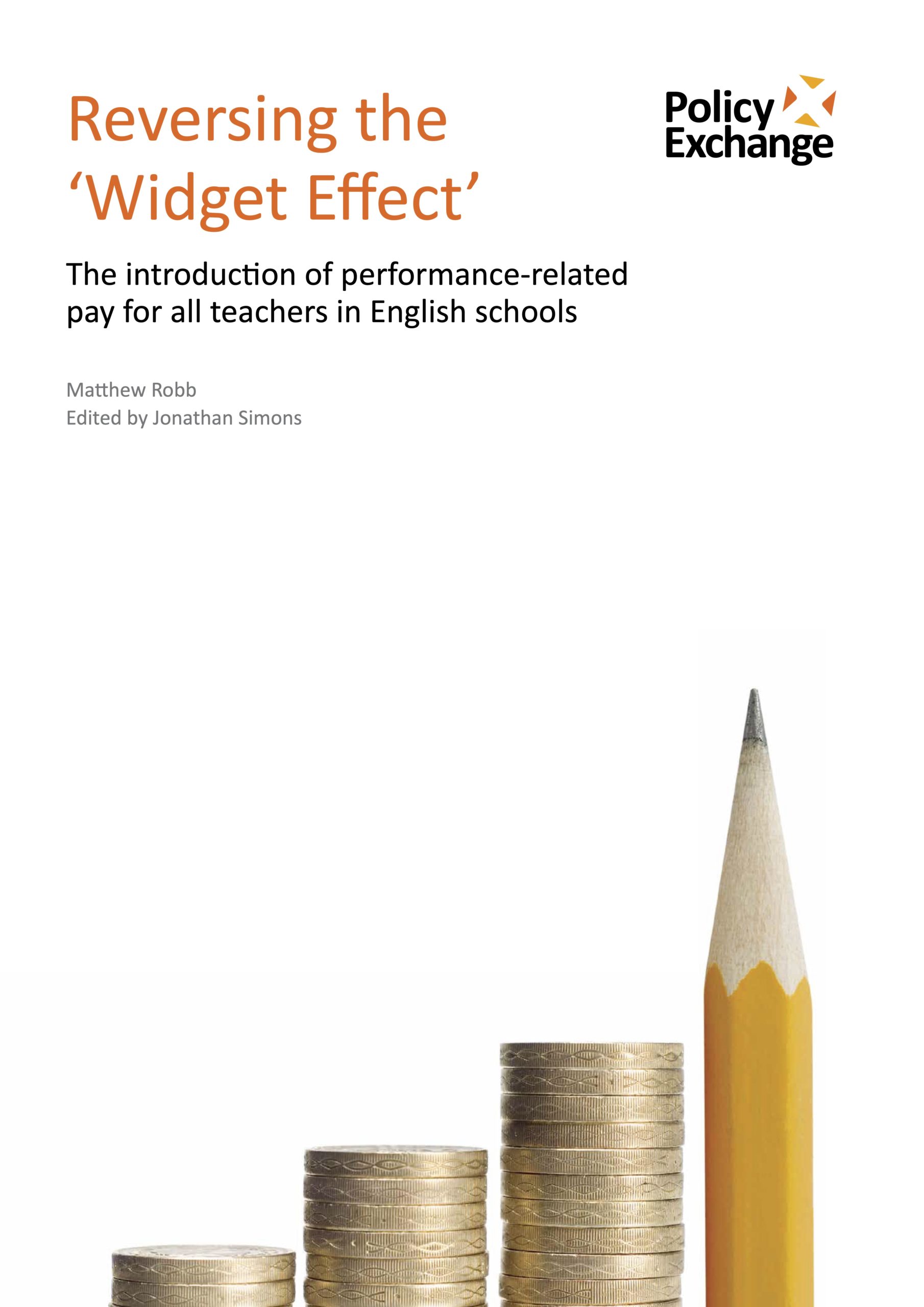Jonathan Simons
Director of Policy and Advocacy, Varkey Foundation
Jonathan is the newly appointed Director at the not-for-profit organisation established to improve the standards of education for underprivileged children throughout the world. He was formerly Head of the Education Unit at Policy Exchange, where he directed research on all aspects of education including Early Years, schools, skills and HE.
Previously Jonathan worked at Serco Group, where he was Director of Strategy in the company’s specialist education practice. Prior to that, he was Head of Open Public Services in the Cabinet Office, and Head of Education in the Prime Minister’s Strategy Unit in the administrations of both Gordon Brown and David Cameron.
Outside of work Jonathan is the Chair of Governors and Co-Founder of Greenwich Free School, and a Trustee of Reach4 Multi Academy Trust. He writes a weekly column for the TES newspaper on politics and education policy.
The BBC credits Policy Exchange's 'Primary Focus' report as a key contributor to the Government's academies policy.
The Guardian cites Jonathan Simons', Policy Exchange's Head of Education, recommendations that flexible working and greater benefits are needed to improve teacher retention and stop women from leaving teaching after maternity leave.
The Times covers Policy Exchange's launch of The Importance of Teachers: A collection of essays on teacher recruitment and retention, and highlights the need to improve teacher retention and recruitment especially among women.
Jonathan Simons, Policy Exchange's Head of Education, is quoted by the TES saying that the Spending Review will feel like a good settlement in the education sector, although some academies will face real terms funding reductions.
Writing in The Guardian, education journalist Fiona Millar cites a Policy Exchange blog post by Jonathan Simons and Natasha Porter which highlighted evidence against the social mobility case made in favour of grammar schools.
Clarity in law is much more than an arcane pursuit. This short collection of essays examines the importance of ensuring that the legislation associated with education both supports the policy aims of the state and matches our understanding of high quality provision.
Apprenticeships programme needs stronger focus on quality, says Policy Exchange. New report urges the government to put in place a high level quality target alongside its existing commitment to create 3 million new Apprenticeship starts by 2020 The Apprenticeships programme will not deliver its full potential unless a greater focus is placed on improving the quality of all Apprenticeships, according to a new report, which concludes the government has focused […]
The Importance of Teachers is a collection of 11 essays from expert commentators and participants in education which set out practical things which government, schools and heads might do to tackle the teacher supply crunch currently affecting schools in England.
Time to Care sets out how the presumed introduction of 30 hours a week free childcare for working parents of 3 and 4 year olds offers a potentially transformative possibility of evolving childcare and early years education into a mature public services market like 5-16 schooling or the NHS. The report sets out the benefits of such an approach and makes further recommendations for the Department for Education to take forward in this area.
Higher, Further, Faster, More calls for BIS to redirect up to £532m of the Higher Education Funding Council (HEFCE) grant to improve the quality of Further Education. Whilst acknowledging the importance of our Higher Education sector, the report points out that universities are sitting on reserves of £12.3bn at a time when 1 in 4 FE colleges could effectively go bankrupt within a year.
Ahead of a speech by American education academic E. D. Hirsch, Policy Exchange has drawn together a collection from a diverse range of education policy experts discussing the impact that Hirsch's thinking has had on the curriculum.
Secondary schools should cover the costs of some or all their students who fail to get a C in GCSE English or maths and end up transferring from the school to a Further Education (FE) College to take their resits.
Free Schools are raising standards for other pupils across the local community, especially in some of the poorest performing schools, as well for the pupils who attend them. A Rising Tide sets out for the first time detailed analysis on the performance of local schools where a Free School has opened.
The Education Manifesto offers a suite of education policy proposals, including ideas on compulsory maths for all 16-18 year olds, a student debt forgiveness scheme for teachers in state schools, incentives to attract teachers to work and stay in regions and a publicly funded retraining scheme linked to growth sectors in the UK’s new industrial strategy.
A “perfect storm” of challenges could see over 3,000 primary schools (20%) falling below the government’s tough new minimum standards in 2016. Primary Focus says the most effective way to ensure teachers and schools have the capability and capacity to cope with these challenges is to convert all primary schools into Academies, and then ask each school to join an Academy ‘chain’ by 2020.
Both Labour and the Conservatives have recently called for more schools to run longer days – either to provide more opportunities for extra curricular activities, to help learning, or to provide a safe and secure place for childcare for working parents. Our report, and accompanying polling from YouGov, looks at what a longer day might look like in practice.
Watching the Watchmen calls for a fundamental change in the power relationship between schools and Ofsted. It calls for lesson observations to be ditched, for Ofsted to consider abolishing or radically reducing the number of inspectors contracted to private companies and for inspectors to have relevant and recent teaching experience. It also proposes a new two-stage inspection process that will allow more resources to be focused on struggling schools.
Reversing the 'Widget Effect' welcomes the government’s introduction of performance pay in schools. The report shows that performance-related pay has been implemented in other countries without adverse effects for teachers or students, and finds that overwhelmingly teachers want to be paid based on the quality of their teaching. The report stresses that the system implemented must be fair and transparent in order to succeed, and sets out what a well-designed system would look like.
Jonathan Simons — Policy Exchange's Head of Education — looks at the background of high-performing NHS Chief Executives to consider what role non-teachers can play in school leadership
Jonathan Simons argues that parents who have taken their children out of school today in protest at the SATs are misguided and are harming children.
Policy Exchange's Education Unit examines the relationship between house prices and school quality.
Following the government’s commitment to universal Academisation, Jonathan Simons, Policy Exchange's Head of Education, sets out what role parents should play in the governance of Academies.
In the second of a two part blog, Jonathan Simons sets out wider system changes that the government ought to make alongside converting every school to an Academy.
Following the Budget announcement that all schools will become Academies, Jonathan Simons sets out the case in support of that objective.
Jonathan Simons, Policy Exchange's Head of Education, examines the DfE’s consultation that begins the long awaited move to a national funding formula for schools from 2017.
In an article for The Telegraph, Jonathan Simons, Policy Exchange's Head of Education and James Darley, Executive Director of Graduate Recruitment, Teach First discuss ways in which to tackle the teacher recruitment crisis.
Jonathan Simons, Policy Exchange's Head of Education, highlights the importance of fair school admissions in a speech given to the Young Fabian education network.
In an essay for NAHT, Jonathan Simons, Policy Exchange's Head of Education, sets out some issues to consider when DfE are designing the new national funding formula.
Jonathan Simons, Policy Exchange's Head of Education, argues that the 3 million Apprenticeship target is well intentioned but threatens to place a burden on large schools and Academy chains.
Jonathan Simons, Policy Exchange's Head of Education, debunks the argument that local democratic pressures exerted on councils force them to hold schools to account for their performance. Jonathan shows that in reality, in 16 of the lowest performing areas in the country for education, the parties controlling those councils were actually more likely to hold or increase their council majority than to lose control.
Following a roundtable at Google Jonathan Simons, Policy Exchange's Head of Education, warns against the approach to education that some tech evangelists are adopting. He rejects calls to move away from knowledge into skills, moving away from academic exams and simply focusing on what employers want, and stresses the importance instead of getting smart, skilled people interested in teaching.
Jonathan Simons, Policy Exchange's Head of Education, looks at the challenges facing schools in the Spending Review. School funding reform is likely to hit schools with higher funding, due to the protection of the schools budget, areas that were cut in the last Parliament will be cut again, and because the schools budget is only protected in cash terms, schools will lose money in real terms.
Following the recent controversy over changes to the Ministerial Code, Professor John Finnis explains for Policy Exchange's Judicial Power Project, why the 2010 Code was wrong to imply that Ministers have an overarching duty to comply with international law and treaty obligations and why the formulation used in the 2015 Code is constitutionally sound.
Jonathan Simons, Policy Exchange's Head of Education, looks ahead at the challenges facing the higher education sector, including: a tightening of funding during the spending review; a re-emergence of tuition fees as a political issue and the potential effects of Brexit on international students.
Jonathan Simons, Policy Exchange's Head of Education, discusses how the reforms to the education system since 2010, particularly improvements to the curriculum and exam system, have improved prospects for disadvantaged pupils.
As A Level students across the country find out their results today, Policy Exchange's Head of Education Jonathan Simons sets out the success story behind improved universities funding and access.
Jonathan Simons, Policy Exchange's Head of Education, has today written a blog in response to Matthew Taylor, the head of the RSA, and his assertion in the Telegraph that many Russell Group universities cannot be 'creative'.
Policy Exchange takes a more detailed look at the Summer Budget, including: the impact of the Living Wage; the reduced pace of departmental spending cuts; the fundamental shift in welfare policy; what awaits Housing Associations; and the impact of changes to energy levies.
Jonathan Simons, Policy Exchange's Head of Education, sets out how the government's new measure for coasting schools is likely to work in practice.
On the back of announcements by Nicky Morgan last weekend, Policy Exchange's Head of Education Jonathan Simons considers which schools the government may be about to classify as coasting and in need of further attention.
Jonathan Simons, Policy Exchange's Head of Education, sets out the priorities facing the new BIS team. He lists higher education (including shifting fees and the future of international students), science, further education and skills as their top priorities.
In a blog based on a speech he made earlier today, Policy Exchange's Head of Education Jonathan Simons discusses the policy challenges facing schools after the election. Jonathan argues that the closeness of the election will make it difficult to enact significant education reforms.
Jonathan Simons, Head of Education at Policy Exchange, sets out the findings from A Rising Tide, our new report that takes the first detailed look at the impact of Free Schools. The report shows that Free Schools have a positive influence on the results of underperforming local schools.
Jonathan Simons, Policy Exchange's Head of Education, looks at the Labour claim that £9,000 a year tuition fees are putting prospective students off going to university. Jonathan argues that cutting tuition fees would have no appreciable effect on entrance rates, serving only to benefit mostly male higher earners decades from now.
Jonathan Simons, Policy Exchange's Head of Education, sets out the three questions the government will need to answer in order to effectively implement today's announcement from the Prime Minister that "coasting" schools will be forced to accept new leadership.
Jonathan Simons, Policy Exchange's Head of Education, examines three questions raised by the recent debate on the new format school league tables: does it matter if well known public schools reside at the bottom of the table; does it matter if we can't truly compare 2013 and 2014 results; and does it matter if league tables only give a partial picture of performance?
Natasha Porter and Jonathan Simons, Policy Exchange's Deputy Head and Head of Education, argue that – contrary to what the backers of more grammar schools say – selective education was actually bad for social mobility. They show that grammar schools left behind those who did not attend them in terms of both grades and pay, that grammar schools take fewer poor students and that they did not necessarily provide a good education.
Policy Exchange's Head of Education, Jonathan Simons, contrasts recent announcements on education policy from the Labour and Conservative Parties. Jonathan sets out how the varied reactions to these announcements provide an interesting illustration as to the current state of education political communications.
Policy Exchange's Head of Education, Jonathan Simons, writes welcoming Lucy Powell MP's sensible position on Sure Start centres. Jonathan highlights how the proposals mirror calls from Policy Exchange's Centres of Excellence? report, looking at how to improve children's centres at a time when money is tight.
This blog is a summary of the remarks that Jonathan Simons, Policy Exchange's Head of Education, gave to the Wellington Festival of Education. Jonathan calls for the creation of new centres of power to drive change in education and challenge current dominant beliefs held within the system.
Jonathan Simons, Policy Exchange's Head of Education, tackles Ed Miliband's recent question at PMQs as to who parents go to if they have a problem with their child's school.
Jonathan Simons, Policy Exchange's Head of Education, responds to comments made following our recent report on Ofsted, Watching the Watchmen, and reflects on Sir Michael Wilshaw's speech at the ASCL Conference. Jonathan reiterates some of the recommendations of the report, such as the need to maintain lesson observations in certain cases. In addition, he calls for more transparency and for schools to be given more power over decision-making.
Jonathan Simons, Policy Exchange's Head of Education, analyses Michael Gove's recent speech in which he said that he wanted to "break down the Berlin wall between state schools and independent schools." Jonathan argues that Gove was making the point that many state schools show what amazing things can be done with less money and a more diverse intake.
Jonathan Simons, Policy Exchange's Head of Education, offers some observations and a couple of questions on the recent UCAS figures showing that university applications are up among the most disadvantaged and relatively static for the most advantaged.
Jonathan Simons, Policy Exchange's Head of Education, writes advocating a 'licence to teach', an external mark of professional quality, indicating an ongoing commitment to professional development and mastery of practice.
Jonathan Simons, Policy Exchange's Head of Education, highlights how performance-related pay will improve the quality of teaching by attracting more high flying graduates and encouraging the professional development of teachers. The effects of performance-related pay on the teaching profession were explored by Policy Exchange recently in our reportReversing the 'Widget Effect'.
Jonathan Simons, Head of Education at Policy Exchange, writes backing the introduction of performance-related pay (PRP) for English teachers. Simons shows that, despite what teachers' unions might say, teachers overwhelmingly want to be paid on the quality of their teaching, that it is possibly to measure teacher effectiveness, and that PRP has demonstrably improved pupil outcomes. He does, however, stress the hard work that schools will have to put in to designing systems that are reliable, have credibility with teachers and reward collaboration and pupil progress.
Following the publication of the National Audit Office's report on Free Schools, Jonathan Simons, Head of Education at Policy Exchange, argues that much of the coverage of the report has been ideologically motivated and ignored the general tone of the report. In response, Jonathan highlights 12 positive findings from the report.
Jonathan Simons, Head of Education at Policy Exchange responds to the publication of the PISA 2013 figures which compare literacy and numeracy for 15 year-olds across the OECD. Jonathan argues that there is much to learn from other countries, including those that use performance-related-pay to drive up standards.
Jonathan Simons, Policy Exchange's Head of Education, examines Ed Miliband's recent childcare speech. Jonathan welcomes the fleshing out of Labour's commitments in this area, but argues there are still real questions as to the practicalities of they will implement free childcare measures and wraparound primary school care to give parents a concrete offer for their children and reassure schools that this will not turn into a bureaucratic exercise.
Jonathan Simons, Head of Education at Policy Exchange imagines what Nick Clegg should have said in his speech on education today. Jonathan examines the progress on education the Lib Dems have made in Coalition and finds that they have a strong story to tell.
Following Ofsted's investigation into the Derby free school Al Madinah, Jonathan Simons, Policy Exchange's Head of Education argues that while there are wider lessons to learn from this failure, particularly in implementation, it cannot be used to condemn the principle of the free school programme.
Jonathan Simons, Policy Exchange's Head of Education, examines new shadow education secretary Tristram Hunt's policy on free schools. Jonathan praises Hunt's approach, which is supportive, but notes three key details to watch for: how Labour define the "areas of need" they want new schools to operate in, planning issues for new schools and whether or not free schools will retain their preferred status when a local authority is seeking a new school.
Jonathan Simons, Policy Exchange's Head of Education, comments on new data from Save the Children showing that 78% of the difference in attainment recorded in literacy and numeracy at age 16 is already present at age 7. Jonathan notes the significiant pivot from the organisation from their previous focus on living standards to the schools space, and asks whether this might see policymakers likewise refocus their efforts to this area.
Policy Exchange's recently appointed Head of Education, Jonathan Simons, responds to the Lib Dem's announcement that all five - seven year olds will receive free school meals from next year. Jonathan argues that although there are some benefits attained from more children eating school lunches, the £600m cost of this scheme could be better spent increasing the pupil premium to provide better quality education to the most deprived youngsters.
Jonathan Simons, Policy Exchange's Head of Education, examines Michael Gove's recent speech to Policy Exchange on 'The Importance of Teaching'. Jonathan notes how the teaching force is becoming less homogenous and increasingly differs in its views on education reform to those held by trade union leaders and the 'education establishment'. Gove may well find that talking over the heads of the self proclaimed intermediaries means he needn’t expend so much effort attacking future rounds of union strikes and some findings of ‘progressive’ academics.





